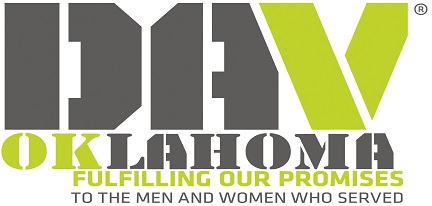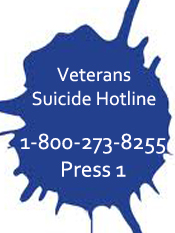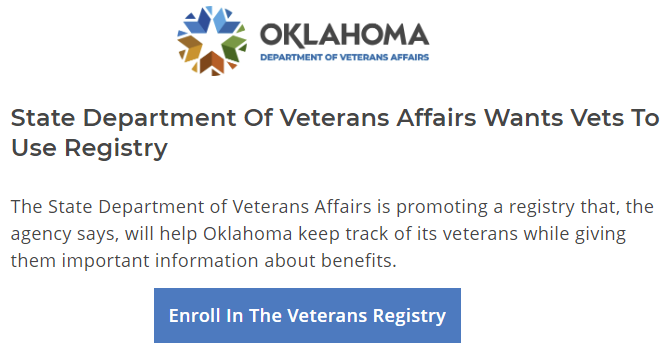Starting next year, service members who have been in the military for more than 16 years will no longer be able to transfer GI Bill benefits to their dependents — a change to current Pentagon policy that’s garnered mixed reviews from military advocates.
The Defense Department announced on July 14, 2018 that it is instituting the 16-year cap, effective in one year, and making other changes “to more closely align the transferability benefit with its purpose as a recruiting and retention incentive,”
Currently, service members with at least six years under their belt may transfer their GI Bill benefits to a spouse or child, provided they agree to serve in the military for four more years. Effective immediately, service members who are not eligible to fulfill the additional service requirement — including because of mandatory retirement, high-year tenure or medical issues — may not transfer their benefits.
The six-year minimum requirement is not changing.
DoD to bar GI Bill transfer for long-serving troops:
Disabled Vets Space “A” Update – H.R. 936 | Extend Eligibility to 100% Rated Vets:
This bill was referred to the House Armed Service Committee last week. It is a bill that, if passed, would allow veterans with a 100% service connected total and permanent disability to travel on military aircraft in the same manner and to the same extent as retired members of the armed forces are allowed to travel.
If you are in favor of this bill you need to write your elected representatives and let them know your thoughts.
GI Bill update ► VA comparison tool:
For any service member or veteran looking to pursue their educational goals through the use of the GI Bill, there is an important tool offered by VA. The GI Bill Comparison Tool allows users to compare different programs and institutions that accept the GI Bill. In the past few years, some student veterans have been impacted by the abrupt closures of the schools they were attending. These schools were using predatory business practices and had numerous complaints against them. The GI Bill Comparison Tool gives users the ability to check on the schools they wish to attend, and provides up-to-date data received from current and past students, helping GI Bill users make better, more informed decisions about where to attend school, and hopefully avoid programs that offer little to no value
For help choosing a school, refer to https://www.benefits.va.gov/gibill/choosing_a_school.asp.
TRICARE user fees ► under age 65 retirees could see major fee hike:
Some military families would see some co-pays decrease under a Senate proposal to change the Tricare fee structure, but retirees under age 65 would see a major fee hike. Working-age retirees now pay no enrollment fees to join Tricare Select. The proposal would create a $450 annual enrollment fee for an individual and a $900 annual enrollment feefor a family, in addition to a new out-of-network deductible for this coverage group that could cost retirees even more. Retirees in Tricare Prime would see their enrollment fee increase to $350 per individual, from the current $289.08, or to $700 per family, from the current $578.16.
Burn Pit Toxic Exposure update ► back in the spotlight:
House lawmakers will take up the issue of burn pits in early JUN with a hearing focused on how much is known about troops health effects after toxic exposure to the waste fires overseas. A series of lawmakers and veterans groups have pushed to revive the issue in recent weeks amid concerns that the problem — well-known to troops who served in Iraq and Afghanistan — has largely fallen out of the consciousness of the public and elected officials. More than 141,000 veterans and current servicemembers have enrolled in Veterans Affairs’ Airborne Hazards and Open Burn Pit Registry, which allows individuals to document their experiences and illnesses with the department. But advocates say more attention needs to be put on the issue to ensure that veterans suffering from rare cancers and other illnesses don’t face a years-long wait for recognition of their injures. House Veterans’ Affairs Committee members will look into what other avenues might be available for that type of action.
•• Isakson, Scott bill to provide equal burial benefits for veterans heads to President’s desk:
U.S. Senator Johnny Isakson, R-Ga., chairman of the Senate Committee on Veterans’ Affairs, applauded Senate passage of the Veterans Cemetery Benefit Correction Act, legislation he introduced along with U.S. Representative Austin Scott, R-Ga.-08, to require the U.S. Department of the Interior to provide grave liners for veterans buried in cemeteries under the control of the National Park Service. In Georgia, this would include Andersonville National Cemetery.
Current law requires the U.S. Department of Veterans Affairs (VA) to provide an outer burial receptacle, more commonly called a grave liner, to a veteran buried in a national cemetery under the control of the National Cemetery Administration, a branch of the VA. Additionally, the VA can provide a reimbursement if the family chooses to purchase one in lieu of a government-furnished grave liner.
National Park Service cemeteries are not currently covered by this statute, and neither the VA nor the National Park Service is able to provide this benefit for veterans buried in those cemeteries.
• House passes several veterans bills ahead of Memorial Day:
H.R. 1972, VA Billing Accountability Act, as amended:
authorizes VA to waive copayment requirements when the veteran is not billed in a timely manner.
H.R. 3642 , Military SAVE Act, as amended:
would require VA to carry out a pilot program to furnish community care to veterans who have experienced military sexual trauma.
H.R. 3832, Veterans Opioid Abuse Prevention Act, as amended:
would allow for the greater sharing of information between VA and State-based prescription drug monitoring programs.
H.R. 4245, Veterans’ Electronic Health Record Modernization Oversight Act of 2017:
would strengthen Congressional oversight of VA’s electronic health record modernization program.
H.R. 4830, SIT-REP Act, as amended:
would require that in order for a school or training program to be approved for GI Bill benefits they must adopt
a policy that disallows the school or training program from imposing a late fee, denial of access to facilities
or other penalty against the veteran or eligible dependent due to a late payment from VA. This would only apply
if the payments have not been received within 90 days of the beginning of the term and the Secretary would have
the authority to waive this requirement.
H.R. 4958, Veterans’ Compensation Cost-of-Living Adjustment Act of 2018:
would provide a cost-of-living adjustment for veterans disability, additional compensation for dependents,
dependency and indemnity, and clothing allowance for certain disabled veterans.
H.R. 5044, Service-Disabled Veterans Small Business Continuation Act:
would address a technical issue that has arisen from legislation that was passed last Congress related to rules
for surviving spouses’ ability to claim service disabled veteran owned small business (SDVOSB) status for the
Vets First contracting program.
H.R. 4451, Homeless Veterans’ Reintegration Programs Reauthorization Act of 2018, as amended:
would reauthorize the Homeless Veterans Reintegration Program (HVRP) as well as the Homeless Women Veterans
and Homeless Veterans With Children Reintegration Grant Program (HVRP-W) for five years. The bill would also
clarify eligibility for both programs to include incarcerated veterans and veterans using a HUD-VASH
voucher.
These bills must now go to the Senate for vote. If you see a bill that you believe will help I urge you to contact your elected representative and let them know your opinion.
• Massive veterans policy bill heads to Trump’s desk, but results will take time:
We have all heard about the veterans bill that was passed and sent to the president for signature but –
most of the impact won’t be seen until years from now. That’s because most provisions of the measure — which include overhauling the Department ofVeterans Affairs community care programs and benefits to older veterans — will take months or years to put in place.
“(This bill) gives a real choice, real opportunity to make the private sector a force-multiplier for access to health care for our veterans,” Senate Veterans’ Affairs Committee Chairman Johnny Isakson, R-Ga., said before his chamber’s vote. “It also makes our health care system for our veterans accountable to the most important people of all, and that’s our veterans.”
So, while the passage of the bill is good news for veterans, implementation may be a different story.
• The military tuition assistance (TA) program:
If you’ve thought about going to college, but didn’t know if you could afford it, then the Military Tuition Assistance program may be just the benefit you need. The program is available to active duty, National Guard and Reserve Component service members. While the decision to pursue a degree may be a difficult one personally, TA can lessen your financial concerns considerably, since it now pays up to 100 percent of tuition expenses for semester hours costing $250 or less.
Tuition assistance may be used for the following programs:
Vocational/technical programs
Undergraduate programs
Graduate programs
Independent study
All four service branches and the U.S. Coast Guard offer financial assistance for voluntary, off-duty education programs in support of service members’ personal and professional goals. The program is open to officers, warrant officers and enlisted active duty service personnel
• Rapid Appeals Modernization Program (RAMP):
In November 2017, VA launched Rapid Appeals Modernization Program (RAMP) with the goal of providing eligible Veterans with the earliest possible resolution of their disability compensation claim.
RAMP is voluntary and will provide eligible Veterans the opportunity to enter the new, more efficient review process outlined in the historic Veterans Appeals Improvement and Modernization Act of 2017 (Appeals Modernization Act), before the law becomes effective in February 2019
Under RAMP, Veterans can expect to receive a review of the decision on their claim much faster than if they remain in the legacy appeals process. The program will allow participants the option to have their decisions reviewed in the Higher-Level Review or Supplemental Claim Lane outlined in the Appeals Modernization Act.
You are eligible if you have a disability compensation appeal pending in one of the following legacy appeal stages:
Notice of Disagreement (NOD
Form 9, Appeal to Board of Veterans’ Appeals (Board)
Certified to the Board but not yet activated for a Board decision
Remand from the Board to VBA.




